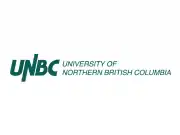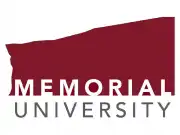Health Programs in Canada for International Students
- Advantages of Studying Health Programs in Canada
- Formats and Levels of Health Programs in Canada
- Top Universities for Health in Canada
- How to Apply for Health Programs in Canada
- Documents Required for Health Programs in Canada
- Tuition Costs for Health Programs in Canada
- Scholarships and Grants for Health Programs in Canada
- Career Prospects After Health Studies in Canada
- Is It Worth Studying Health Programs in Canada
- Frequently Asked Questions

Bachelor of Science in Nursing - Post-Diploma Baccalaureate Nursing
University of Northern British ColumbiaRegistered nurses who already have an RN diploma from an accredited college or university can enroll in the Post-Diploma Baccalaureate Nursing Program to earn their BScN degrees.
The program is designed to reinforce previously acquired skills and knowledge while also introducing new material…

Bachelor of Human Kinetics and Recreation Co-operative
Memorial University of NewfoundlandThe bachelor of human kinetics and recreation co-operative (BHKRC) is designed for those who want to plan their educational path to get where they want to go, preparing you for careers in a variety of health-related professions such as health promotion, kinesiology, community and therapeutic recreation,…

Bachelor of Kinesiology
Memorial University of NewfoundlandStudents interested in the science of human movement and exercise should pursue a bachelor's degree in kinesiology. It will train you for jobs in ergonomics, fitness, health & wellness, and lifestyle.

Bachelor of Science - Nursing
Memorial University of NewfoundlandThe bachelor of science in nursing (collaborative) programme is designed to prepare entry-level nurses for careers as direct caregivers, educators, counsellors, advocates, facilitators, coordinators of care, researchers, leaders, and members of the nursing profession in a variety of health care settings.
The…

Bachelor of Physical Education
Memorial University of NewfoundlandThe bachelor's degree in physical education is intended to equip graduates for professions in teaching and related fields.
- Possibility of teaching
The teaching option includes courses in physical education principles as well as curriculum creation,…

Bachelor of Recreation
Memorial University of NewfoundlandThe bachelor of recreation programme is meant to give students the opportunity to gain professional skills in recreation and leisure service management. The curriculum trains you to plan, develop, and lead recreational events in a range of contexts. The optional therapeutic recreation stream prepares…

Master of Health Ethics
Memorial University of NewfoundlandThe Master of Health Ethics degree programme will prepare students to recognise and understand ethical challenges in health care and the life sciences, as well as to offer solutions to these issues as they occur in clinical, research, and policy contexts. Students will obtain a fundamental understanding…

Masters of Human Kinetics and Recreation
Memorial University of NewfoundlandIn 2005, the MSc (Kinesiology) programme began. Throughout its history, many master's students have gone on to doctoral programmes. During that time, graduate students wrote or co-wrote more than 200 peer-reviewed articles. The laboratories are well-equipped, including, but not limited to, 5 data…

Masters of Human Kinetics and Recreation - Kinesiology
Memorial University of NewfoundlandIn 2005, the MSc (Kinesiology) programme began. Throughout its history, many master's students have gone on to doctoral programmes. During that time, graduate students wrote or co-wrote more than 200 peer-reviewed articles. The laboratories are well-equipped, including, but not limited to, 5 data…

Master of Science - Medicine
Memorial University of NewfoundlandMemorial University of Newfoundland's Faculty of Medicine, one of 17 Canadian medical schools, was founded in 1967. The Faculty is located in the Medical Education Centre, which is adjacent to the Health Sciences Centre in St. John's. The Medical Education Centre is a modern facility that also houses…
Advantages of Studying Health Programs in Canada
Canada is rightfully considered one of the best countries for obtaining education in healthcare. It offers high-quality academic programs recognized worldwide, as well as opportunities for internships at leading medical institutions and research centers.
A special advantage for international students is the large number of English-taught programs. Nearly all universities in the country offer courses taught entirely in English, making Canada particularly attractive for students from different countries. Most programs are taught entirely in English, which significantly simplifies adaptation.
The main advantages of studying health in Canada include:
- Quality education — Canadian diplomas in health are recognized by employers and academic institutions worldwide;
- Large number of English-taught programs — most courses are taught in English, which is especially convenient for international students;
- Safety and high standard of living — Canada consistently ranks among the safest countries in the world;
- Developed infrastructure for practice — universities closely collaborate with clinics, hospitals and research centers;
- Immigration opportunities — graduates of in-demand fields, including health programs, may qualify for permanent residency.
Healthcare education in Canada includes not only theoretical training but also active practical components through university collaborations with hospitals, medical institutions and research laboratories. Graduates acquire in-demand knowledge and skills recognized worldwide.
Moreover, Canada is known for its high level of safety, stable economy and comfortable living and study conditions. The multicultural environment allows students to feel part of an international community.
Formats and Levels of Health Programs in Canada
Canada offers a wide range of health study programs:
- Bachelor's Degree — duration 3-4 years, basic theoretical training and initial practical skills.
- Diploma programs and certificates — practice-oriented courses lasting from 1 year.
- Master's Degree — 1-2 years of advanced study and research.
- PhD — preparation of research personnel, duration 3-5 years.
- Preparatory programs — for those who need to improve language skills or academic preparation before main studies.
Popular fields: public health, medical sciences, nursing, physiotherapy, pharmacy, biomedicine.
Top Universities for Health Programs in Canada
| University Name | Program Name | Fees for International Students (CAD/year) | World Ranking* | Comment |
|---|---|---|---|---|
| University of Toronto | Bachelor of Health Studies, Public Health, Medicine | 60,000 — 75,000 | Top 30 | One of Canada's oldest and most prestigious universities |
| McGill University | BSc in Global Health, Medicine, Public Health | 50,000 — 68,000 | Top 50 | Recognized as a world leader in medicine |
| University of British Columbia | Bachelor of Health and Exercise Sciences | 45,000 — 60,000 | Top 40 | Strong scientific research and infrastructure |
| McMaster University | Health Sciences, Public Health, Medicine | 50,000 — 65,000 | Top 150 | Known for innovative teaching methods |
| University of Alberta | Bachelor of Public Health, Nursing, Medicine | 45,000 — 58,000 | Top 120 | Strong programs in medical sciences |
* According to QS and Times Higher Education international rankings
How to Apply for Health Programs in Canada
The application process consists of several steps:
- Choosing a program and university — study the requirements of specific programs.
- Preparing documents — collecting academic transcripts and certificates.
- Language tests:
- IELTS Academic — minimum score usually 6.5-7.0;
- TOEFL — from 85 points;
- Duolingo — accepted at some universities.
- Interview — not required for all programs but common for medical fields.
- Additional exams:
- MCAT — mandatory for undergraduate medical programs;
- GRE — for master's programs in health research.
It's important to check with universities in advance whether a preparatory program is required for admission.
Documents Required for Health Programs in Canada
The following documents are required for application:
- High school diploma or degree with supplement;
- Official transcripts;
- Language test results (IELTS, TOEFL, Duolingo);
- Motivation letter;
- Recommendation letters;
- CV or resume (for master's and higher);
- Results of additional exams (MCAT, GRE) if required;
- Passport with sufficient validity period;
- Medical certificate (for some programs).
Some universities may request essays or portfolios, especially for interdisciplinary programs.
Tuition Fees for Health Programs in Canada
Tuition fees vary by university and program:
- Bachelor's: from 30,000 to 75,000 CAD per year;
- Master's: from 25,000 to 60,000 CAD per year;
- PhD: from 20,000 to 50,000 CAD per year;
- Certificate programs: from 15,000 to 35,000 CAD.
Additional expenses:
- Accommodation: 10,000 — 15,000 CAD per year;
- Food: about 3,000 — 6,000 CAD per year;
- Transport and personal expenses: 2,000 — 4,000 CAD per year;
- Health insurance: from 600 CAD per year.
The total estimated costs range from approximately 50,000 to 100,000 CAD per year.
Scholarships and Grants for Health Programs in Canada
Canada offers various types of financial support:
Academic scholarships (for academic achievements):
- International Entrance Scholarship;
- University of Toronto International Scholars Program;
- UBC Outstanding International Student Award.
Financial aid (based on financial need):
- Need-Based International Student Bursaries (at some universities).
Special scholarships:
- Scholarships for women in science;
- Scholarships for future public health specialists.
University grants:
- McGill Entrance Scholarships;
- University of Alberta International Scholarships.
Criteria:
- High academic performance;
- Language test scores;
- Motivation and leadership qualities.
Application deadlines: typically from December to March, but exact dates depend on the university.
Career Prospects After Health Studies in Canada
Healthcare education opens numerous opportunities:
Popular professions:
- Healthcare professionals;
- Public health specialists;
- Biomedical researchers;
- Pharmacists;
- Physiotherapists;
- Medical technologists.
In-demand fields:
- Healthcare administration;
- Biomedical research;
- Healthcare innovations.
Major employers:
- Canadian hospitals and clinics;
- Research centers;
- Private medical companies;
- International healthcare organizations.
Example companies:
- Toronto General Hospital;
- Vancouver Coastal Health;
- Medtronic Canada;
- Canadian Blood Services.
Graduates may also continue education or work abroad.
Is It Worth Studying Health Programs in Canada
Canada offers a balanced combination of education quality, safety and career prospects. In comparison:
- USA — expensive education but high prospects;
- Europe — has affordable programs but limited English-language options;
- Canada — optimal balance of cost, quality and work opportunities.
Conclusion: studying in Canada is a beneficial choice for those seeking prestigious healthcare education.
Frequently Asked Questions
1. Can I apply for health study programs in Canada without medical education?
Yes, you can apply for bachelor's and diploma programs right after high school.
2. How much does healthcare education cost in Canada?
Costs range from 30,000 to 75,000 CAD per year depending on level and university.
3. Is it difficult for international students to get into medical programs in Canada?
Competition is high, especially for physician training programs.
4. Can I get a scholarship for healthcare studies in Canada?
Yes, academic scholarships, university grants and financial aid are available.
5. Which Canadian universities are strongest in health?
Leaders in this field are University of Toronto, McGill University, University of British Columbia.
6. Are additional exams required for medical programs?
Medical programs often require MCAT. For other fields — depends on university requirements.
7. What are employment prospects after completing health programs in Canada?
Graduates are in demand at hospitals, pharmaceutical companies, research centers and private clinics.
8. Is it possible to stay and work in Canada after completing health programs?
Yes, graduates can obtain work permits and apply for immigration programs.